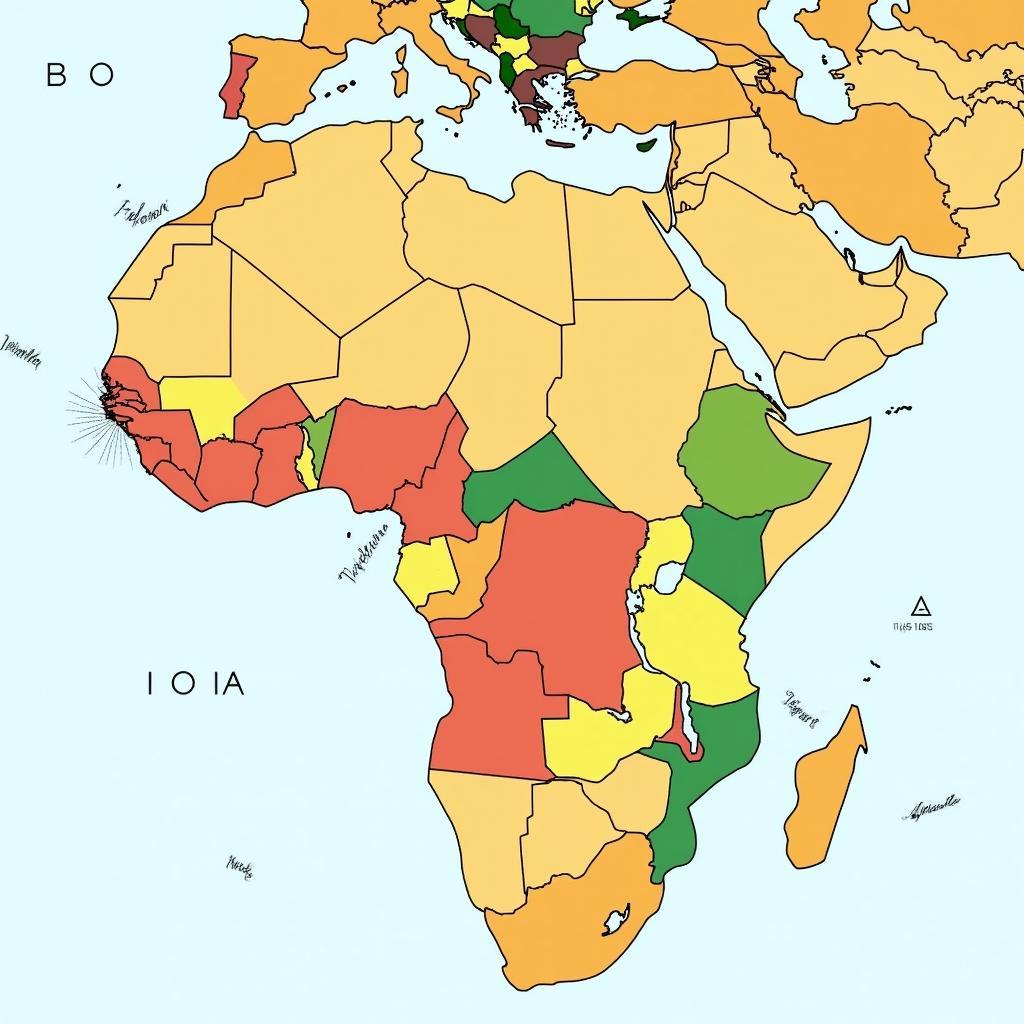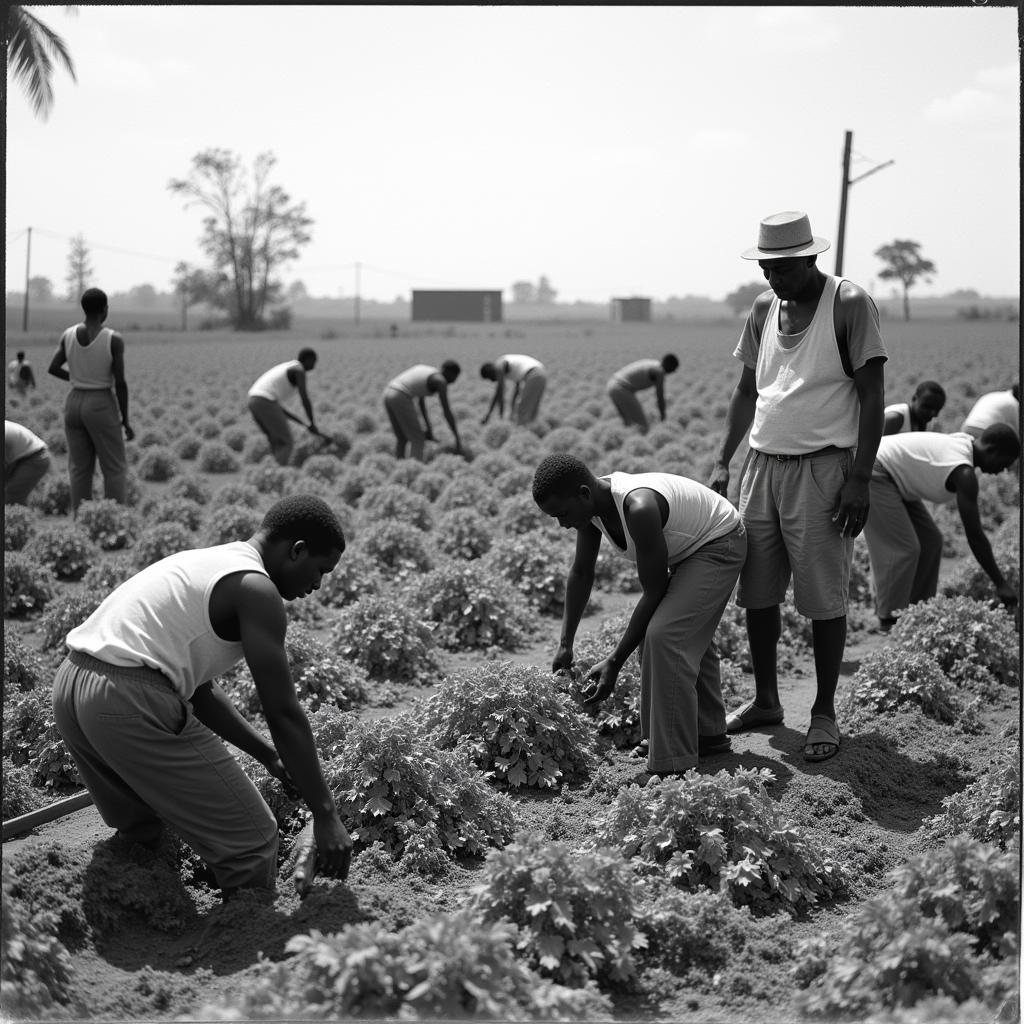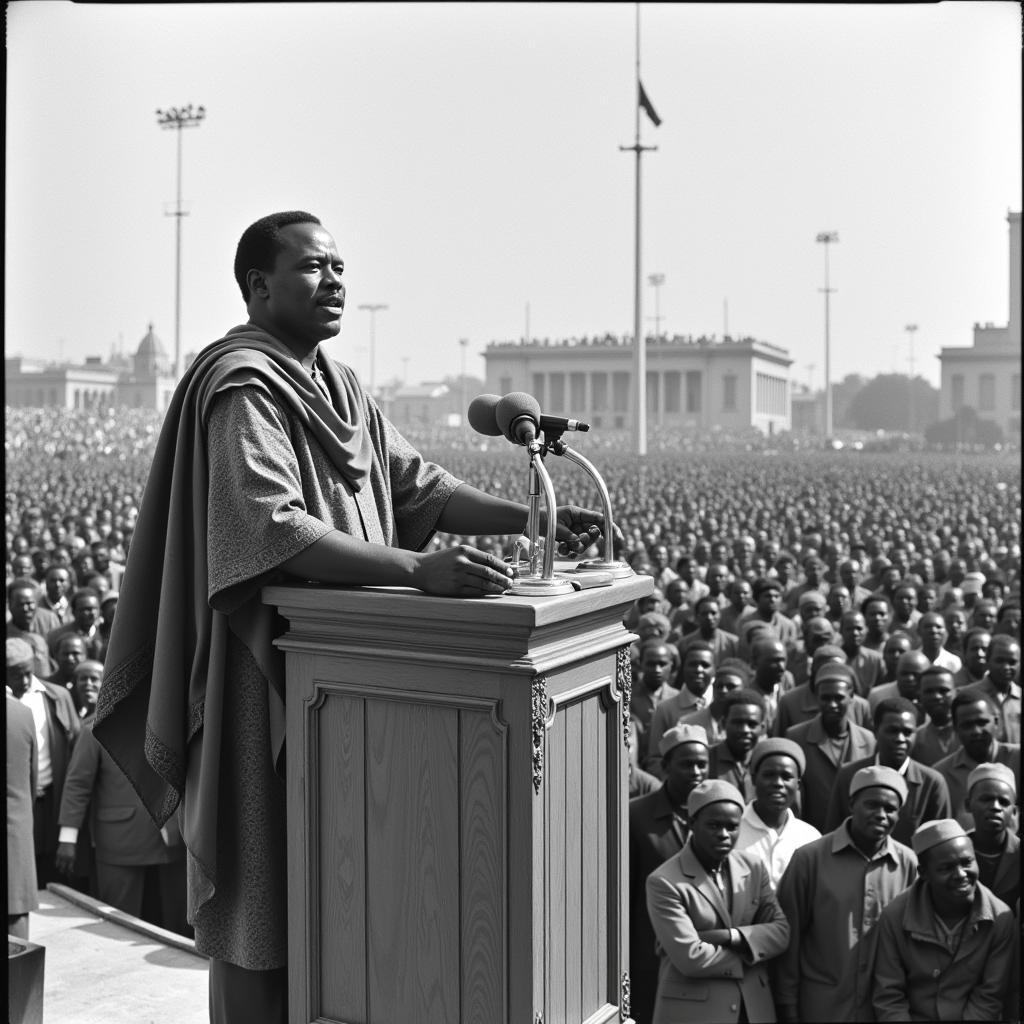The Impact of Colonial Campaigns on African Life
From the late 15th century onwards, European powers embarked on a series of expeditions and conquests that would come to be known as the “Scramble for Africa.” This period, reaching its peak in the late 19th century, saw the rapid colonization of nearly the entire African continent. These “African campaigns” by colonial powers had a profound and lasting impact on every facet of African Life, shaping the continent’s political, economic, and social landscape for generations to come.
 Map of Colonial Africa
Map of Colonial Africa
The Scramble for Africa: A Continent Divided
Driven by a complex interplay of economic, political, and ideological motives, European nations engaged in a fierce competition for control of African territories. The discovery of valuable resources like gold, diamonds, and rubber fueled their ambitions, while the desire for new markets and strategic advantages further intensified the scramble. The Berlin Conference of 1884-1885 formalized the partition of Africa, dividing the continent among European powers with little regard for existing ethnic, linguistic, or cultural boundaries.
This division had devastating consequences, igniting conflicts between different African communities and laying the groundwork for future instability. The imposition of artificial borders disrupted traditional power structures, trade routes, and social cohesion, creating lasting tensions that continue to resonate in many parts of Africa today.
Economic Exploitation and Underdevelopment
Colonial campaigns were driven by the insatiable appetite for resources and profit. European powers exploited Africa’s vast natural wealth, extracting raw materials to fuel their industrial revolutions back home. This systematic exploitation left many African economies underdeveloped and dependent on the export of a limited range of commodities.
Moreover, colonial economic policies, often characterized by forced labor, land alienation, and discriminatory taxation systems, hindered the development of local industries and entrepreneurship. These policies created lasting inequalities and hampered Africa’s ability to compete in the global market on an equal footing.
 African Farmers During Colonial Era
African Farmers During Colonial Era
Social Upheaval and Cultural Disruption
The social fabric of African societies was deeply disrupted by colonial campaigns. Traditional systems of governance, kinship ties, and social hierarchies were often undermined or dismantled, replaced by European-imposed structures that prioritized colonial interests.
The introduction of Western education systems, while offering some opportunities for advancement, often came at the expense of indigenous knowledge systems and cultural practices. Missionary activities, integral to many colonial campaigns, sought to convert African populations to Christianity, leading to the suppression of indigenous religions and belief systems. This cultural clash created a sense of alienation and loss of identity among many Africans.
Resistance and the Seeds of Independence
Despite the overwhelming power of the colonizers, African resistance to colonial rule was a constant undercurrent throughout this period. From large-scale armed uprisings to acts of everyday defiance, Africans fought to preserve their land, culture, and autonomy.
Leaders like Samory Toure in West Africa, Menelik II of Ethiopia, and the Ashanti Queen Yaa Asantewaa in present-day Ghana emerged as symbols of resistance, inspiring future generations of freedom fighters. Their struggles, though ultimately unsuccessful in preventing colonization, laid the groundwork for the eventual decolonization movements that swept across the continent in the mid-20th century.
Legacy and the Path to Recovery
The colonial campaigns in Africa left an indelible mark on the continent. The arbitrary borders, economic disparities, and social divisions that resulted from this period continue to pose challenges to many African nations. However, it is crucial to recognize the resilience and agency of the African people in navigating the complex legacy of colonialism.
Across the continent, efforts are underway to address historical injustices, promote economic development, and reclaim cultural heritage. By acknowledging the past and working towards a more equitable future, African nations are forging a new path defined by self-determination and progress.
FAQ
1. What were the main motivations behind the “Scramble for Africa”?
The “Scramble for Africa” was driven by a combination of factors, including the search for new markets and raw materials, strategic competition between European powers, and a belief in European superiority.
2. How did colonialism impact African economies?
Colonialism led to the exploitation of African resources, hindered the development of local industries, and created dependence on European economies.
3. What were some forms of African resistance to colonialism?
African resistance took many forms, from armed rebellions to passive resistance, religious movements, and the formation of political organizations.
4. How did colonialism affect African cultures?
Colonialism disrupted traditional social structures, suppressed indigenous religions and languages, and imposed Western values and institutions.
5. What are some of the ongoing challenges faced by African nations as a result of colonialism?
Ongoing challenges include poverty, inequality, political instability, ethnic conflicts, and the legacies of economic exploitation.
Need further assistance? Contact us at +255768904061, email us at [email protected], or visit us at Mbarali DC Mawindi, Kangaga, Tanzania. Our customer service team is available 24/7. You can also find more information on related topics in our articles about African communities action plan and African drought edison mpina.

